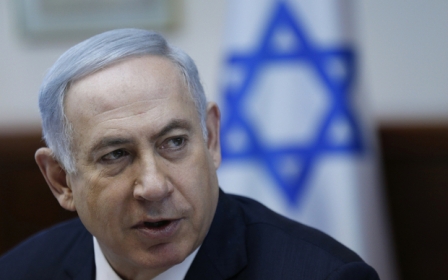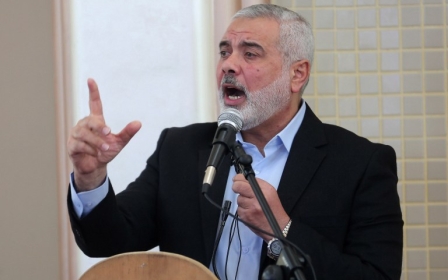Hamas condemns Israel mosque loudspeaker bill

Hamas on Friday denounced planned Israeli legislation that would quieten mosques, warning such a law would face stiff resistance.
The Israeli parliament on Wednesday gave preliminary approval to two controversial measures that would limit calls to prayers from mosques in Israel and occupied east Jerusalem, including one prohibiting the use of loudspeakers at all hours.
Ismail Haniya, deputy head of Hamas's political bureau, condemned the move.
"This decision will not pass," he said after Friday prayers in the Gaza Strip, which Hamas have run since 2006.
"Our people and nation will raise the Azan all over the world," he said, using the Arabic word for the Muslim call to prayer.
While the bills, in theory, would apply to any religious place of worship, Muslims say they are clearly meant to silence the traditional call to prayer at mosques.
The measures have become commonly known as the "muezzin law" after the Muslim official charged with calling the faithful to prayer, often through powerful speakers mounted on minarets.
The notion of Israeli legislation silencing mosques has sparked outrage around the Arab and wider Muslim world.
Arab members of the Israeli Knesset described the move as "racist".
Meanwhile, Tzipi Livni, a leader of the centre-left Zionist Union party and a former foreign minister suspected of war crimes, said "proud Israelis" should join together in opposing legislation that would only "spread hate and ignite tensions" between Palestinians and Israelis.
Twenty percent of the Israeli population are Palestinian.
Supporters of the move say it is needed to prevent daily disturbance to the lives of hundreds of thousands of Israelis.
Middle East Eye propose une couverture et une analyse indépendantes et incomparables du Moyen-Orient, de l’Afrique du Nord et d’autres régions du monde. Pour en savoir plus sur la reprise de ce contenu et les frais qui s’appliquent, veuillez remplir ce formulaire [en anglais]. Pour en savoir plus sur MEE, cliquez ici [en anglais].




